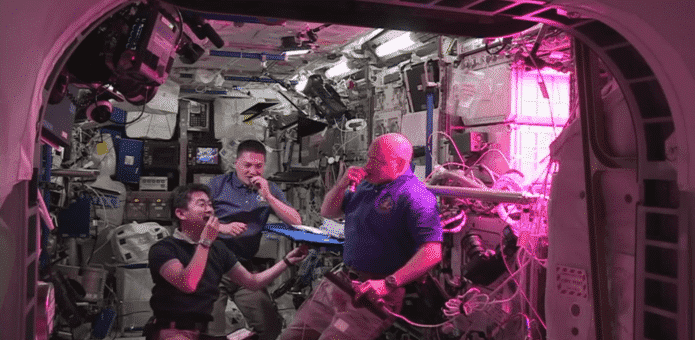Table Of Contents
NASA funding $200,000 a year research for converting human poop into astronaut’s meal
NASA’s interest in manned missions to Mars and Moon is ever increasing and now it is focusing on ways to convert human feces into food for its on board astronauts during the long interplanetary journeys.
The U.S. space agency, NASA has sanctioned funds of $200,000 a year for up to three years to the researchers at Clemson University in South Carolina. The major aim of this research would be to discover ways on how to turn human poop into synthetic food!
With NASA’s growing interest in the long interplanetary journeys it is becoming very much essential to make provision for food that can sustain astronauts during long journeys such as extended Martian mission or any other long journey missions.
In a press release held last week, NASA reported that in all NASA has given out eight grants to universities around the U.S. and this grant is one among them. NASA said all of these grants are aimed at “innovative, early stage technologies that will address high-priority needs of America’s space program”.
Steve Jurczyk, associate administrator for NASA’s Space Technology Mission Directorate, said: “These early career researchers will provide fuel for NASA’s innovation engine. Technology drives exploration, and investments in these technologies and technologists is essential to ensure NASA and the nation have the capabilities necessary to meet the challenges we will face as we journey to Mars.”
Synthetic Biology for Recycling Human Waste into Food:
NASA, believes that this ‘poop project’ could have a big contribution in the space exploration by providing the means of “producing food on site at distant destinations by using synthetic and biology based approaches”.
It was in 2011, when NASA stopped its Space Shuttle program and since then NASA has relied on the paid commercial carriers such as Space X as a means for the continuous supply of food and other essentials, to and fro from the International Space Station (ISS).
However, recently there has been some instances of explosions, such as on June 28th 2015, when the latest Dragon spacecraft cargo which was suppose to run to the ISS exploded during its flight. And instances of delay such as, postponement of SpaceX’s reusable rocket landing test at least by 24 hours due to bad weather that resulted in pushing back the delivery of fresh cargo to ISS for NASA.
These incidences have clearly indicated the importance of having alternative source of food which can help astronauts sustain for some more time, it becomes all the more important, in case the spacecrafts are planning for some long interplanetary journeys.
Well, astronauts have already started growing their own red romaine lettuce since May and just last week have even done a “taste” test on these which seems to be pretty delicious. This indicates that NASA is actually making awesome progress at growing their own food in orbit.
What’s more, the ISS also has an expresso maker known as ‘ISSpresso’ which the crew members can use to make tea, coffee, broth and any other hot beverages that they want to enjoy.
For a long time now, the space stations have actually been finding ways to deal with the space wastes especially when it comes to the disposal of human feces. Besides, the sheer practicalities of using toilet in zero gravity and the related hygiene were also a big concern.
Earlier, when Soviet Union had disposed off the frozen urine in to space from Mir space station’s toilet, it damaged the solar panels of the space station by hitting it and thus created a problem.
Anyways, astronauts on ISS are already drinking their own fluids, which includes their urine and sweat!
So recycling the human feces, would in a way “close the loop” thus helping the space stations to become much more self sufficient and become much more capable to endure longer interplanetary journeys including Mars and further.
For all those of you, who are just not able to accept the thought of eating our own waste, then just wait, the human feces will not be eaten raw and our genius researchers with their persistent efforts will surely land up on some delicious by product of human poop which will not only be hygienic but also delicious!
Anyways NASA is spending huge funds from its pockets for the same so it will not rely for anything less, isn’t it!

